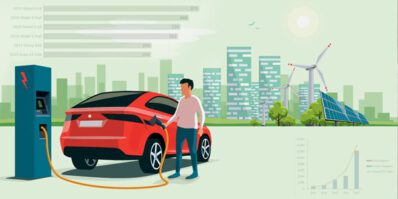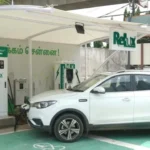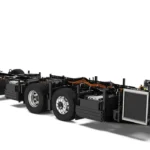Key Highlights:
- China directs automakers to avoid EV investments in India.
- Companies urged to protect vital EV technology by retaining production in China.
- Chinese manufacturers should focus on knock-down kits instead of making a full-scale investment.
- Expansion continues in Spain, Thailand, and Hungary, but core processes remain in China.
China Directs EV Manufacturers to Halt India Investments
China’s Ministry of Commerce has reportedly instructed major electric vehicle (EV) automakers to refrain from making auto-related investments in India. The directive, issued in July, is part of a broader effort to protect China’s EV sector knowledge while mitigating regulatory risks as Chinese manufacturers expand globally.
EV Tech Protection Over Expansion
Despite rising international demand, Chinese automakers were urged to keep essential EV technology in China. This includes limiting investments in countries like India and prioritizing the protection of advanced technology.
The Ministry of Commerce recommended that Chinese manufacturers, instead of direct investments, sell knock-down kits—automobile parts made in China and assembled in foreign facilities. This strategy allows automakers to avoid taxes on Chinese-made EVs while keeping control over the core production processes.
Global Expansion Beyond India
While the directive impacts India, automakers like BYD Co. and Chery Automobile Co. continue with plans to set up facilities in other countries like Spain, Thailand, and Hungary. However, these companies remain focused on keeping key technology in China.
Also Read: Revolt Motors Set to Ignite EV Market With a New Launch
Rules Apply to Other Countries
China’s instructions extend beyond India, affecting investments in countries such as Turkey. The Ministry of Industry and Information Technology now requires Chinese automakers to notify them before making significant foreign investments.
Globalization Amid Tight Competition
Chinese automakers are increasingly looking to globalize their operations. The move aims to avoid tariffs and address competitive pressures in China’s saturated EV market. However, the decision to retain key technology in China could hinder global expansion plans and affect opportunities in regions eager for Chinese investment, such as Europe.
ELCTRIK Speaks
China’s directive to EV companies reflects the country’s strategic approach to protecting its advanced technology while expanding globally. Although this measure may slow the entry of Chinese automakers into markets like India, it allows for more controlled global growth. The strategy enables manufacturers to navigate regulatory challenges while keeping the heart of EV production within China. As automakers continue to expand into other regions, they are likely to face similar constraints, balancing growth with technology protection.







